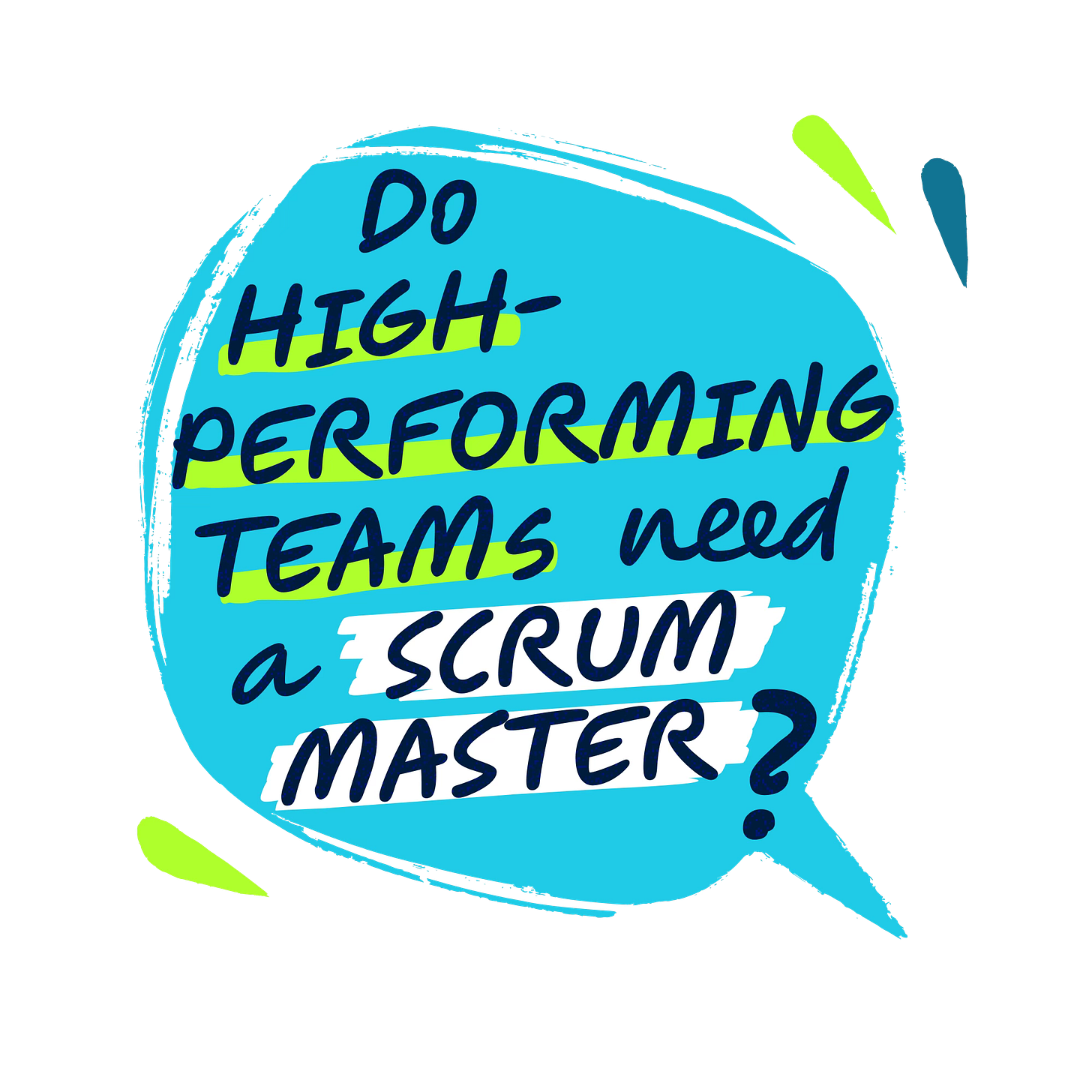Do High-Performing Teams Need a Scrum Master?
Once a self-managing team reaches a level of delivering quality products valued by customers at a rate that outpaces the norm, it needs even more help to maintain and improve its effectiveness.
Top performance requires top coaches. Even teams that consistently deliver value must stay on top of their game. This means constantly getting out of the comfort zone and aiming for better.
Just like in sports, when teams become champions of their game, there’s a reason why they don’t just fire their coaches. To maintain a high level of performance, regardless of whether it’s about delivering value through high-quality and innovative products or being the best at your sport, you need certain ingredients that only a high-level coach or leader can help with.
They need guidance in fostering the right team culture, understating value, continuous improvement, sustaining productivity, and maintaining the most appropriate practices and ways of working.
However, a great team needs a great Scrum Master. They encourage the team to challenge themselves constantly. This focus on continuous improvement prevents complacency and helps teams uncover hidden inefficiencies, improving their productivity and adaptability.
To maintain this growth momentum, the Scrum Master uses all the tools and techniques at their disposal to keep this focus on continuous improvement.
1. Upholding Scrum Without Compromising:
High-performing teams may sometimes feel overconfident about their ways of working. The Scrum Master upholds Scrum and ensures the team understands the concepts and principles behind the framework.
Not understanding why the team needs to use empiricism, self-management, and a product mindset may harm long-term productivity. A disciplined and well-balanced approach ensures that their working methods remain effective, leading to better collaboration and product outcomes.
2. Enabling and Facilitating Conflict and Removing Obstacles:
Even the best teams encounter challenges that can hinder progress. The Scrum Master is a mediator, helping resolve inevitable conflicts and clear obstacles impeding the team's progress. They ensure the focus remains on product delivery and a product mindset by removing unnecessary distractions and disruptions.
3. Nurturing Team Culture:
A positive and inclusive team culture is crucial for top performance. In such a team, the Scrum Master cultivates an environment where every team member feels heard, valued, and motivated, which fosters psychological safety, enabling team members to share new ideas and challenge assumptions without fear of criticism.
4. Relentless Focus on Value:
A top-performing team always keeps an eye on the ball. They understand the value users and stakeholders need and validate the assumptions made. The Scrum Master teaches, coaches, and mentors the team to set goals that align with stakeholder expectations.
They help bridge communication gaps, providing transparency around progress and challenges. This alignment allows the team to focus on delivering maximum value and maintaining stakeholder trust.
5. Encouraging Experimentation:
High-performing teams avoid settling into routines that limit innovation. The Scrum Master fosters a culture of experimentation by promoting safe-to-fail environments where new approaches are encouraged without fear of failure. This culture allows teams to explore innovative solutions and continuously evolve their processes.
The top 1% of teams need the top 1% of scrum masters.
The Scrum Master's accountability and way of working remain essential in guiding continuous improvement, maintaining determination, and nurturing team culture.
They catalyse sustainable success, ensuring the team stays focused, aligned with stakeholders, and open to new ideas. A Scrum Master is a critical enabler of long-term team success.



